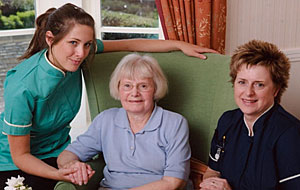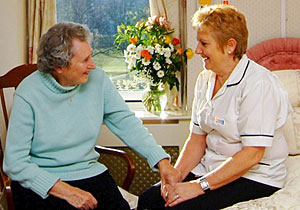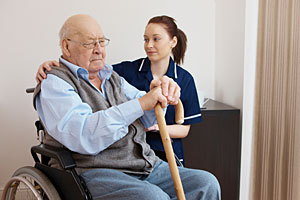Latest News from Everycare
 Two-thirds of older and disabled people in England who turn to their local councils for help with care are turned away, figures show.
Two-thirds of older and disabled people in England who turn to their local councils for help with care are turned away, figures show.
Nearly 1.85 million requests for support were made last year, but just over 650,000 people received help. Councils have been warning for a number of years that a shortage of funding is causing problems.
But the Health and Social Care Information Centre figures shows how difficult it is for people to get help.
Only 144,000 of the requests for help resulted in long-term care, which includes places in care homes or help in the home for tasks such as washing and dressing.
Nearly 220,000 got short-term help, such as rehabilitation after discharge from hospital, and another 300,000 got low-level support such as walking aids and telecare.
The rest either received nothing or were advised to seek help from charities, the NHS or from housing services.
Unlike the NHS, social care is not free so everybody will pay something towards the cost of their care with some covering the entire cost.
To see the full story visit the BBC News website.
 Carers should spend at least 30 minutes on home visits to older people as part of a new gold standard for services, new government guidance says.
Carers should spend at least 30 minutes on home visits to older people as part of a new gold standard for services, new government guidance says.
The National Institute for Health and Care Excellence (NICE) has produced a report showing some carers making visits of 15 minutes and less.
As a result of this NICE are recommending a package of measures, which includes ensuring people’s carers are not changed too frequently.
For 18 years Everycare have refused to carry out 15 minute calls on the basis that no one can deliver a quality service in such a short space of time.
‘It is excellent news that at last this is being recognised as a fact’ said Angela Fuller RN Everycare’s proprietor. ‘When we opened 18 years ago we always said that quality and continuity were the essential cornerstones of our business and whilst other companies have run with 15 minute calls, as the normal in some cases, we never have. When we combine this with regular carers at regular times we can deliver the best possible service to the clients day in day out. I am delighted that NICE and the government are recognising how important it is to give carers and clients the time they need and deserve’ she added.
‘If you want to ensure the best possible care for you or your loved ones ask the care company you are dealing with if they are prepared to carry out 15 minute calls. It will tell you a lot about their standards and the service they offer’ she said in conclusion.
For more on this story visit the BBC News website
 The dignity, health and wellbeing of older people and those with disabilities in England are in danger, health and care groups warn.
The dignity, health and wellbeing of older people and those with disabilities in England are in danger, health and care groups warn.
In a joint submission to the Treasury ahead of November’s Spending Review, 20 organisations said the care sector was facing a “deepening crisis”.
They have called for funding to councils to be protected, as is happening with the NHS.
Ministers said investment in health would also benefit the care sector.
The government pointed out that plans were being put in place to ensure greater joint working between the two sectors that would relieve some of the pressures.
However, the signatories of the submission, who include leaders of councils, the NHS, care providers and charities, said that they still feared for the future. The document said that the market was “fragile” with councils forced to freeze fees and providers exiting the sector.
Fore more on this story visit the BBC website.
 One in three people born in the UK this year is projected to develop dementia in their lifetime, according to Alzheimer’s Research UK.
One in three people born in the UK this year is projected to develop dementia in their lifetime, according to Alzheimer’s Research UK.
The charity described the forecast as a “looming national health crisis”. The figures were based on current life expectancies and the risk of people developing dementia as they age.
However, there is acknowledgement that the figures – projecting what could be happening 100 years in the future – are only an estimate. More than 800,000 people in the country are already affected by the disease, which is caused by the destruction of brain cells.
Age is the biggest risk factor for dementia and rising life expectancies could increase the number of people living with the condition. Heart disease, diabetes, smoking and a lack of exercise are also linked to the condition.
To read the full story visit the BBC website.
 Two-thirds of older and disabled people in England who turn to their local councils for help with care are turned away, figures show.
Two-thirds of older and disabled people in England who turn to their local councils for help with care are turned away, figures show.


 The dignity, health and wellbeing of older people and those with disabilities in England are in danger, health and care groups warn.
The dignity, health and wellbeing of older people and those with disabilities in England are in danger, health and care groups warn.